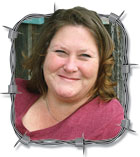 Fair season is in full swing in many communities across the Ozarks, which allows producers of all ages to showcase their best animals in hopes the show’s judge will give their animal that champion slap or give them the congratulatory handshake, which will also give the exhibitor bragging rights for the next year.
Fair season is in full swing in many communities across the Ozarks, which allows producers of all ages to showcase their best animals in hopes the show’s judge will give their animal that champion slap or give them the congratulatory handshake, which will also give the exhibitor bragging rights for the next year.
Fair season is a busy and stressful time for many families, but they wouldn’t have it any other way. It’s what they do and a part of who they are.
There’s also ag mechanics displays; hay and crops contests; youth, 4-H and FFA projects; and all sorts of home economics and art projects to ogle over. Throw a good old-fashioned tractor pull and/or rodeo in the mix and it adds to the fun.
While fairs mean one thing to those of us involved in agriculture, it means something totally different to our town-dwelling neighbors. For those folks, walking through the barns at their local county fair is the closest they have ever been to cattle, sheep, goats or any other livestock. Yes, they will want to touch your freshly fitted ewe. Yes, they will call every bull, heifer and steer they see a cow, and yes, there will be those “urban cowboys” who stroll through the barn and try to impress their friends or date with their “knowledge” about livestock.
One can only giggle at some of the comments made, and the high stepping to try and dodge anything that may have been left behind by a passing horse as folks make their way around the fairgrounds.
While fairs are fun for most, there are elements of our society who see them as an opportunity to bring their anti-agriculture message to town. They know a large percentage of the people who attend the events, especially those larger fairs in larger towns, have no knowledge of agriculture, so there’s no better group to spread their false information and misconceptions to.
Groups like PETA, People of the Ethical Treatment of Animals, worked for decades to get circus animals out of the ring, and they have succeeded, so it’s just a matter of time before they try to do the same thing at livestock shows. The horse industry has been fighting the battle for decades, and rodeos are also a growing target.
PETA actually has a guide on how to become an animal-rights activist. I browsed through it and it’s an interesting read. The 16-page document tells would-be-activists to “blend in” with their target group, includes a suggested script to follow when asked a question, and instructions not to be combative or argumentative with those who oppose their viewpoint. I think that last point has been forgotten by a few of those folks.
There are also specific guidelines and scripts to address animal agriculture, including how cattle and other livestock should be compared to dogs and cats. PETA’s guide also tells their recruits to smile while they protest. I don’t know about everyone else, but I really don’t think I want to see a lot of people covered with fake blood smiling at me as I walk or drive by… Kind of gives me the willies just thinking about it.
What the document leaves out is that PETA actually advocates against no-kill shelters, and it’s leadership advocates for liberating all animals, even your child’s dog. I’m still waiting to hear if the organization ever sent aid to any to the animals impacted by wildfires and other natural disasters this spring.
I’m hopeful fair season in the Ozarks will be a quite one and the animal rights groups will decide it’s too hot outside to confront hard-working livestock producers and farmers. The only advice I can offer to producers who participate in fairs and shows is to remind children to seek out a trusted adult when approached by someone asking questions. Adults should be prepared to present a factual rebuttal to comments, and be an advocate for agriculture.
Farmers and ranchers should actually take page out of PETA’s own “book.” Don’t react with anger or sarcasm, tone down your body language and ask them if they would really like to discuss the issue. PETA says that gives you the moral high ground in the eyes of others and leads to excellent conversations, even with seemingly obnoxious people.
Julie






